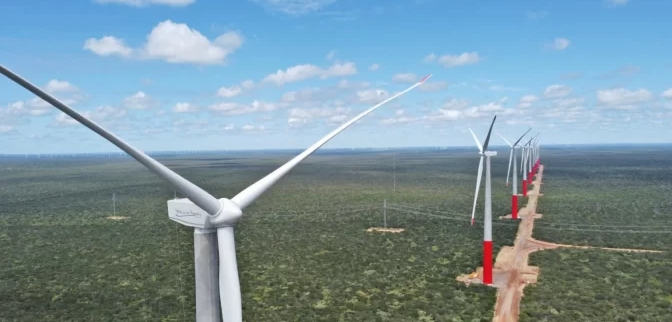
Brazil expanded its installed capacity of electrical energy by 8.4 gigawatts (GW) in 2023, and new plants from renewable wind and solar sources correspond to 90.4% of the growth, the Ministry of Mines and Energy reported this Tuesday.
According to the ministry, the Brazilian electricity matrix reached 196.6 GW at the end of this year, with renewable generation sources (hydraulic, wind, photovoltaic and biomass thermal) representing 83.6% of the total.
In the ranking of the States with the greatest participation in the expansion, Rio Grande do Norte, Minas Gerais and Bahia stood out, with around 2 gigawatts (GW) of new power added in each.
The strong growth of renewable energies in the Northeast and in Minas Gerais, mainly in the State for photovoltaic solar sources, has led the country to reinforce its energy transmission network to the load centers of the Southeast and the South.
After a battery of transmission auctions between this year and March 2024, with the offer of projects for a total of more than 50 billion reais in investments, the government evaluates the need for a new transmission bipole to flow the energy, a venture that could be auctioned in 2025 or 2026.
Another aspect that continued to grow rapidly this year was distributed micro and mini generation, solar plants of up to 5 MW installed on roofs, facades and land that meet the locality’s own energy consumption.
According to the ministry, the self-generation modality of photovoltaic energy reached 24.4 GW of installed capacity in 2023, already representing around 11% of the country’s electricity generation.